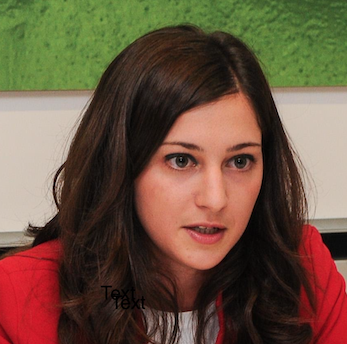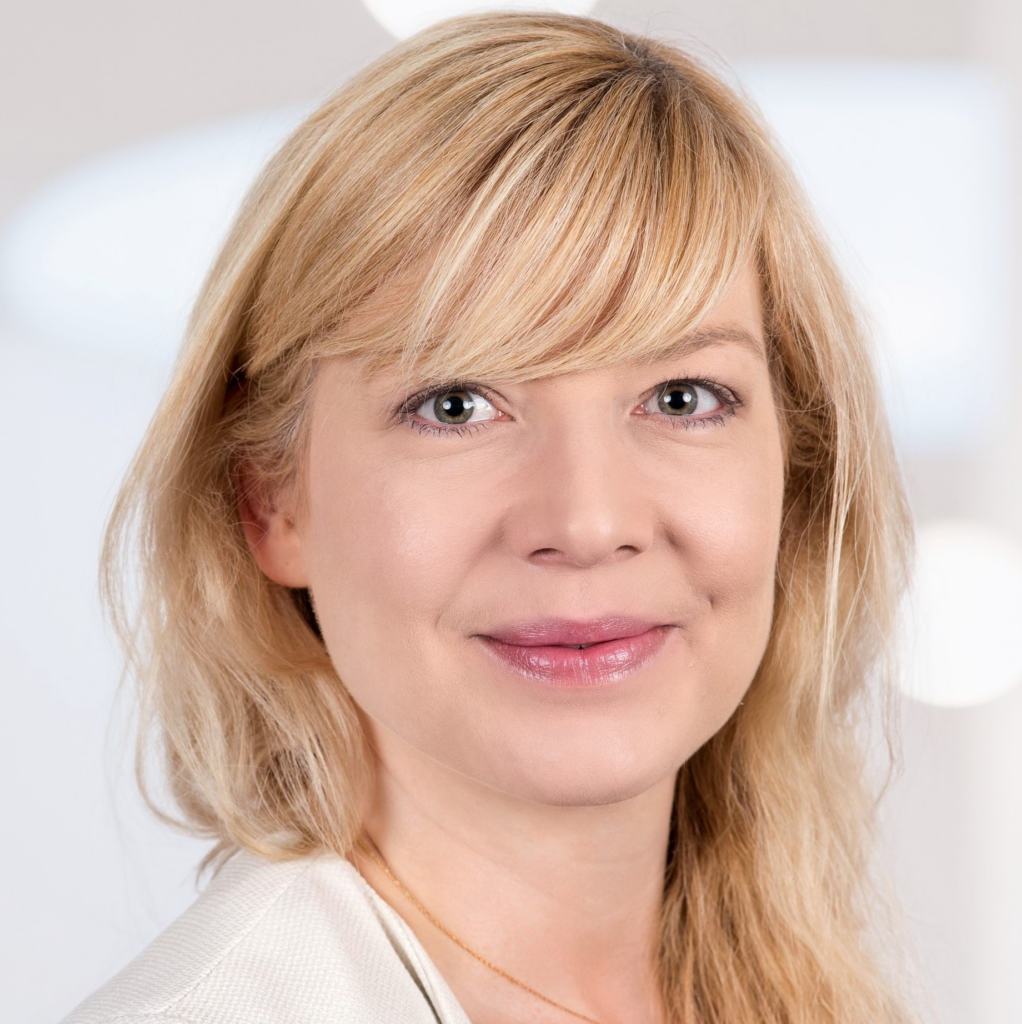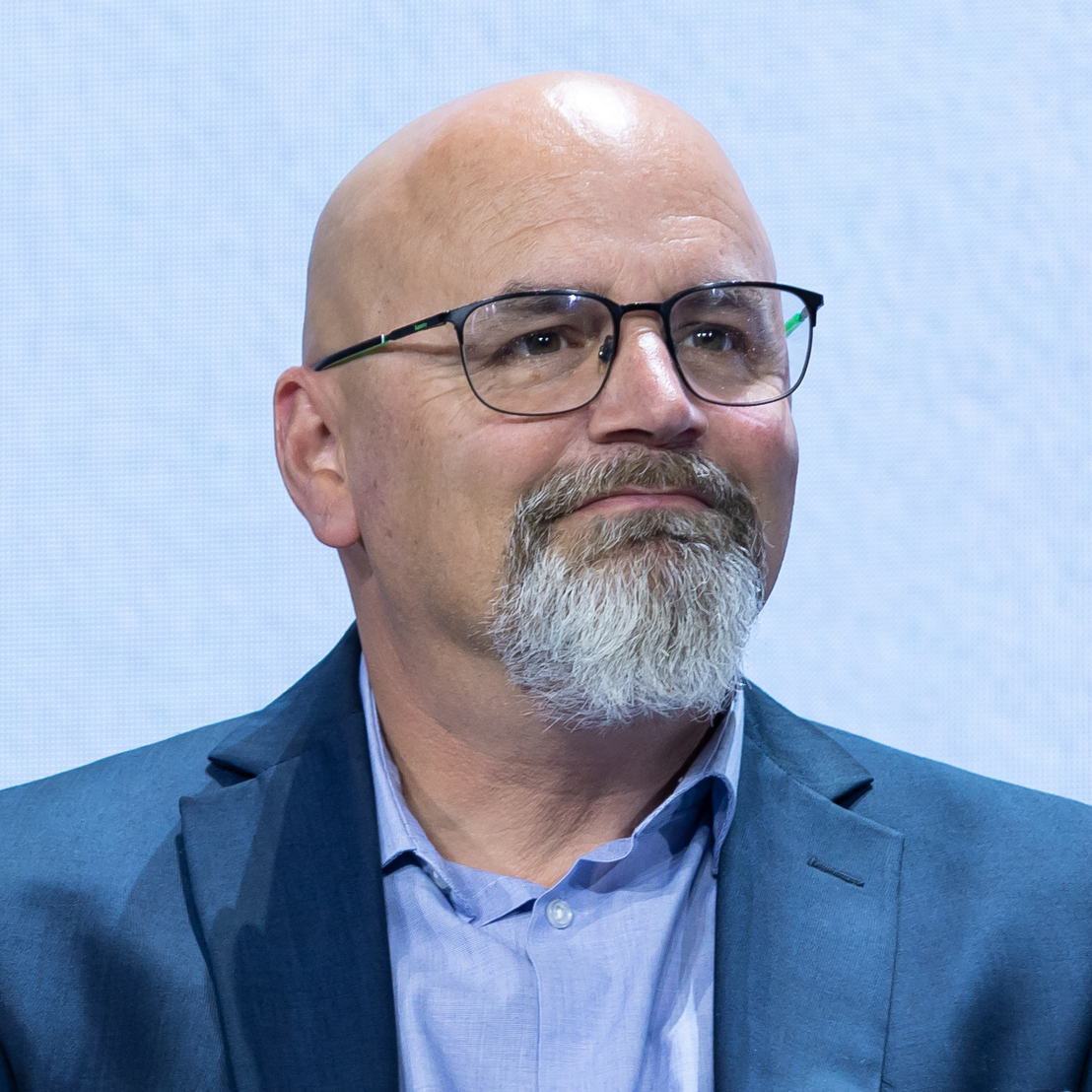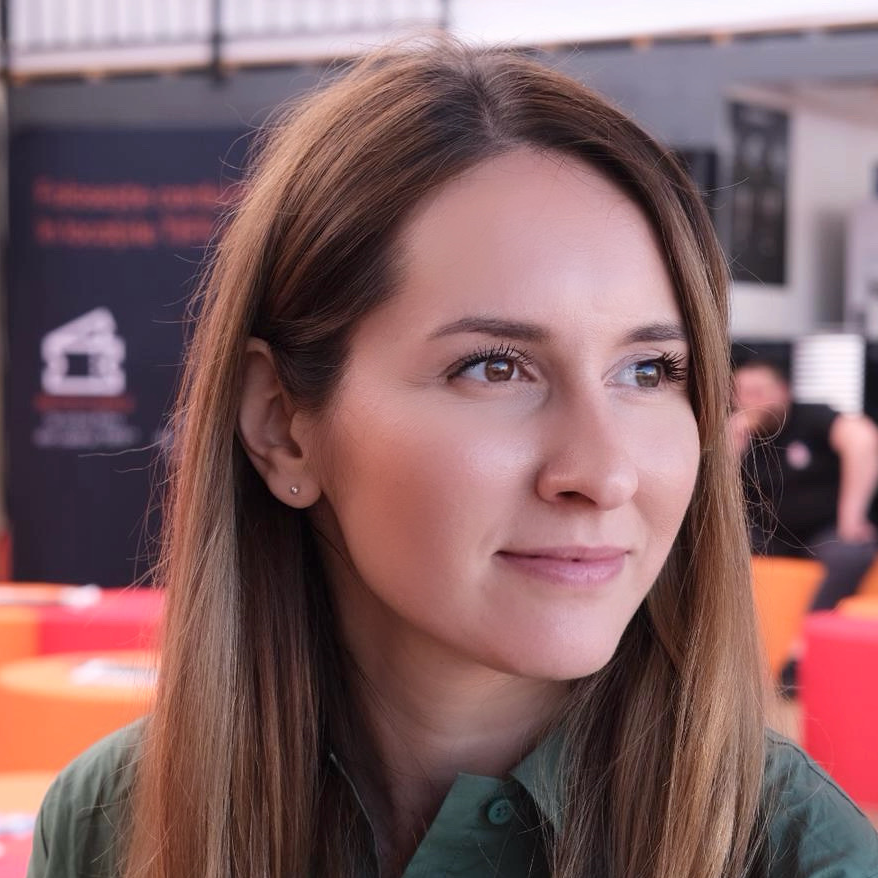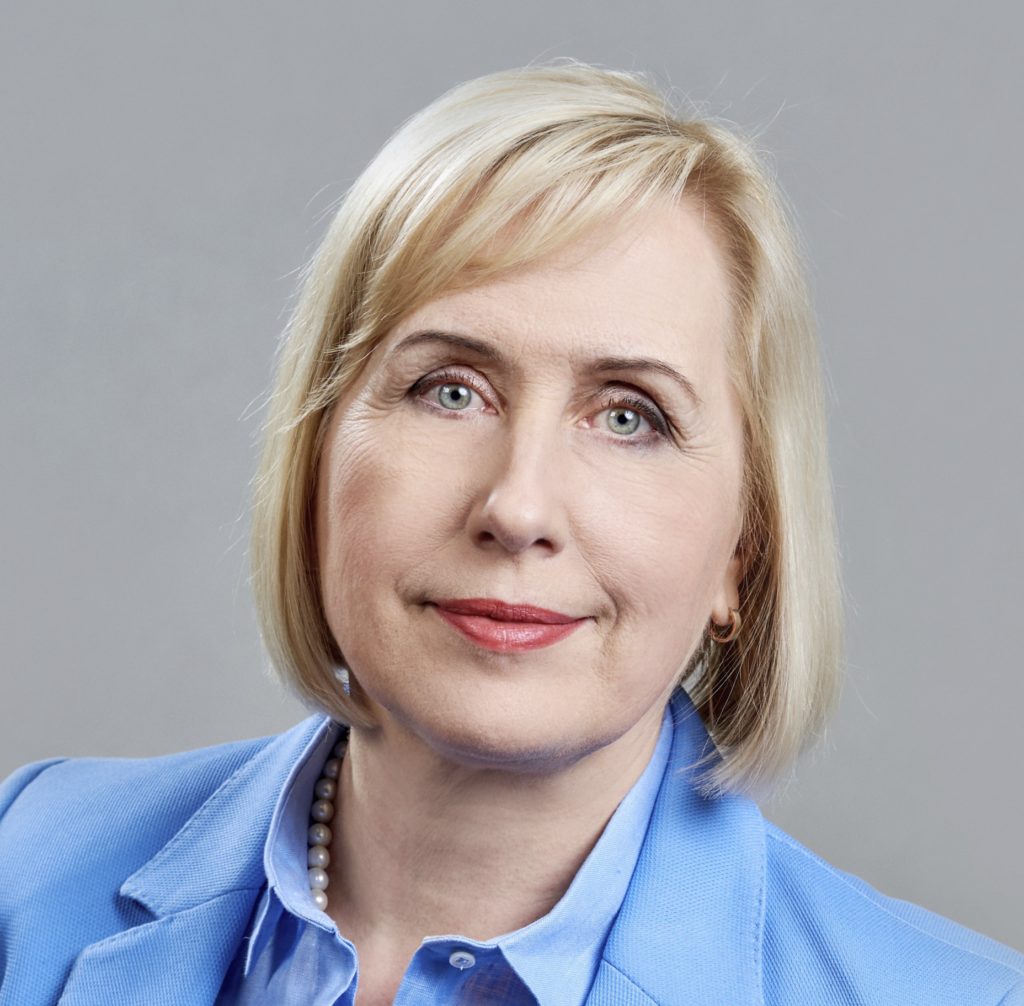Campaigning for Strasbourg
About
CamforS is a scientific collaboration network of scientists at 12 European universities that aims at studying digital campaign strategies. Building upon a broad expertise in political communication research, CamforS focuses on how traditional and new political actors use social media (with a special focus on Facebook) to inform, interact with, and mobilize voters, as well as which target audiences they address during the European Election Campaign 2019.
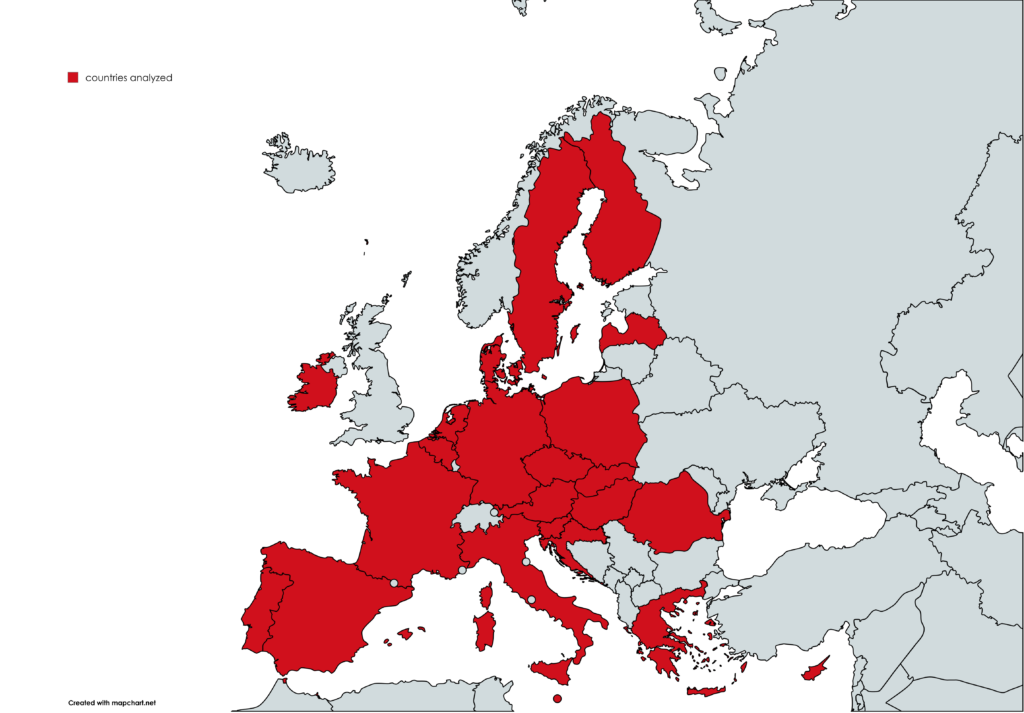
Team
CamforS Network Coordinators
Data Manager
Team Members
Former CamforS Members
Publications
Edited volume
Haßler, J., Magin, M., Rußmann, U., & Fenoll, V. (Eds.) (forthcoming). Campaigning on Facebook in the 2019 European Parliament Elections. Informing, Interacting with, and Mobilising Voters. London: Palgrave Macmillan.
Journal articles
- Kruschinski, S., Bene, M., Haßler, J., Rußmann, U., Lilleker, D., Balaban, D. C., Baranowski, P., Ceron, A., Fenoll, V., & Jackson, D. (2024). Divisive, negative, and populist?! An empirical analysis of European populist and mainstream parties’ use of digital political advertisements. International Journal of Communication, 18, 5518–5539. https://ijoc.org/index.php/ijoc/article/view/21509
- Kruschinski, S. & Bene, M. (2022). In Varietate Concordia?! Political Parties’ Digital Political Marketing on Facebook across 28 Countries in the 2019 European Election Campaign. European Union Politics, 23(1), 43–65. https://doi.org/10.1177/14651165211040728
- Farkas, X., Jackson, D., Baranowski, P., Bene, M., Russmann, U. (2022). Strikingly Similar: Comparing Visual Political Communication of Populist and Non-Populist Parties Across 28 Countries. European Journal of Communication, 37(5), 545-562.
- Bene, M., Magin, M., Haßler, J., Russmann, U., Lilleker, D., Kruschinski, S., Jackson, D., Fenoll, V., Farkas, X., Baranowski, P., & Balaban, D. (2023). Populism in context: A cross-country investigation of the Facebook usage of populist appeals during the 2019 European Parliament Elections. The International Journal of Press/Politics, 1–22. https://doi.org/10.1177/19401612231196158
.
- Wurst, A.-K., Pohl, K., Haßler, J., & Jackson, D. (2023). Emojis in parties’ online communication during the 2019 European election campaign: Towards a typology of political emoji use. International Journal of Communication, 17, 4686–4706. https://ijoc.org/index.php/ijoc/article/view/20268/4259
- Ceron, A., Pagano, G., & Bordignon, M. (2022). Facebook as a media digest: user engagement and party references to hostile and friendly media during an election campaign. Journal of Information Technology & Politics. https://doi.org/10.1080/19331681.2022.2157360
- Baranowski, P., Kruschinski, S., Russmann, U., Haßler, J., Magin, M., Bene, M., Ceron, A., Jackson, D., & Lilleker, D. (2022). Patterns of negative campaigning during the 2019 European Election: Political parties’ Facebook posts and users‘ sharing behaviour across twelve countries. Journal of Information Technology & Politics, online first, 1–19. https://doi.org/10.1080/19331681.2022.2115598
- Wurst, A.-K., Fenoll, V., Haßler, J., Kruschinski, S., Magin, M., Rußmann, U., & Schlosser, K. (2022). Missed opportunity to connect with European citizens? Europarties’ communication on Facebook during the 2019 European election campaign. Studies in Communication Sciences, 22(1), 165–184. https://doi.org/10.24434/j.scoms.2022.01.3053
- Bene, M., Ceron, A., Fenoll, V., Haßler, J., Kruschinski, S., Larsson, A. O., Magin, M., Schlosser, K. & Wurst, A.-K. (2022). Keep Them Engaged! Investigating the Effects of Self-centered Social Media Communication Style on User Engagement in 12 European Countries. Political Communication, 39(4), 429-453 . https://doi.org/10.1080/10584609.2022.2042435
- Bene, M., Magin, M., Jackson, D., Lilleker, D., Balaban, D., Baranowski, P., Haßler, J., Kruschinski, S. & Russmann, U. (2022). The polyphonic sounds of Europe: Users‘ engagement with parties‘ European-focused Facebook posts. Politics and Governance, 10(1), 108–120. https://doi.org/10.17645/pag.v10i1.4700
Book chapter
- Balaban, D. C., Stoica, M. S. & Mucundorfeanu, M. (2021). Romania: Internal Affairs Set the Agenda of the 2019 EP Election Campaign. In J. Haßler, M. Magin, U. Russmann & V. Fenoll (Hrsg.), Campaigning on Facebook in the 2019 European Parliament Election (S. 187–200). Palgrave Macmillan. https://doi.org/10.1007/978-3-030-73851-8_12
- Baranowski, P. (2021). It Is Only a Drill: The 2019 EP Election Campaign on Facebook in Poland as a Testing Ground Before the Autumn Parliamentary Elections. In J. Haßler, M. Magin, U. Russmann & V. Fenoll (Hrsg.), Campaigning on Facebook in the 2019 European Parliament Election (S. 169–185). Palgrave Macmillan. https://doi.org/10.1007/978-3-030-73851-8_11
- Bene, M., Farkas, X. & Burai, K. (2021). Same Strategy, but Different Content. Hungarian Parties’ Facebook Campaign During the 2019 EP Election. In J. Haßler, M. Magin, U. Russmann & V. Fenoll (Hrsg.), Campaigning on Facebook in the 2019 European Parliament Election (S. 119–134). Palgrave Macmillan. https://doi.org/10.1007/978-3-030-73851-8_8
- Bene, M. & Kruschinski, S. (2021). Political Advertising on Facebook. In J. Haßler, M. Magin, U. Russmann & V. Fenoll (Hrsg.), Campaigning on Facebook in the 2019 European Parliament Election (S. 283–299). Palgrave Macmillan. https://doi.org/10.1007/978-3-030-73851-8_18
- Ceron, A., Bordignon, M. & Pagano, G. (2021). The 2019 EP Election in Italy: A ‘Titanic’ Victory for Salvini’s League. In J. Haßler, M. Magin, U. Russmann & V. Fenoll (Hrsg.), Campaigning on Facebook in the 2019 European Parliament Election (S. 151–168). Palgrave Macmillan. https://doi.org/10.1007/978-3-030-73851-8_10
- Fenoll, V. (2021). Spain and Facebook in the 2019 EP Election Campaign. In J. Haßler, M. Magin, U. Russmann & V. Fenoll (Hrsg.), Campaigning on Facebook in the 2019 European Parliament Election (S. 201–215). Palgrave Macmillan. https://doi.org/10.1007/978-3-030-73851-8_13
- Fenoll, V., Haßler, J., Magin, M. & Russmann, U. (2021). Campaigning for Strasbourg on Facebook: Introduction to a 12-country comparison on parties‘ Facebook campaigns in the 2019 European parliament election. In J. Haßler, M. Magin, U. Russmann & V. Fenoll (Hrsg.), Campaigning on Facebook in the 2019 European Parliament Election (S. 3–21). Palgrave Macmillan.
- Haßler, J., Wurst, A.-K. & Schlosser, K. (2021). Analysing European parliament election campaigns across 12 countries: A computer-enhanced content analysis approach. In J. Haßler, M. Magin, U. Russmann & V. Fenoll (Hrsg.), Campaigning on Facebook in the 2019 European Parliament Election (S. 41–52). Palgrave Macmillan.
- Larsson, A. O. (2021). Sceptical Sweden: Right-Wingers Dominate, Traditional Campaigning Permeates During the 2019 EP Election. In J. Haßler, M. Magin, U. Russmann & V. Fenoll (Hrsg.), Campaigning on Facebook in the 2019 European Parliament Election (S. 217–231). Palgrave Macmillan. https://doi.org/10.1007/978-3-030-73851-8_14
- Lilleker, D. G. & Balaban, D. C. (2021). Populism on Facebook. In J. Haßler, M. Magin, U. Russmann & V. Fenoll (Hrsg.), Campaigning on Facebook in the 2019 European Parliament Election (S. 267–282). Palgrave Macmillan. https://doi.org/10.1007/978-3-030-73851-8_17
- Lilleker, D. G., Jackson, D. & Veneti, A. (2021). The UK: The Post-Brexit, Ghost Election. In J. Haßler, M. Magin, U. Russmann & V. Fenoll (Hrsg.), Campaigning on Facebook in the 2019 European Parliament Election (S. 233–248). Palgrave Macmillan. https://doi.org/10.1007/978-3-030-73851-8_15
- Magin, M. & Hopmann, D. N. (2021). A Day Off During the 2019 Folketing Election Campaign: Political Parties’ Use of Facebook in the EP Election in Denmark. In J. Haßler, M. Magin, U. Russmann & V. Fenoll (Hrsg.), Campaigning on Facebook in the 2019 European Parliament Election (S. 69–85). Palgrave Macmillan. https://doi.org/10.1007/978-3-030-73851-8_5
- Magin, M., Russmann, U., Fenoll, V. & Haßler, J. (2021). Information greater than mobilisation greater than interaction: Contours of a Pan-European style of social media campaigning. In J. Haßler, M. Magin, U. Russmann & V. Fenoll (Hrsg.), Campaigning on Facebook in the 2019 European Parliament Election (S. 303–331). Palgrave Macmillan.
- Magin, M. & Vigen, M. G. (2021). When Nothing Happened but Much Changed: How Political Parties in Ireland Used Facebook in the 2019 EP Election Campaign. In J. Haßler, M. Magin, U. Russmann & V. Fenoll (Hrsg.), Campaigning on Facebook in the 2019 European Parliament Election (S. 135–150). Palgrave Macmillan. https://doi.org/10.1007/978-3-030-73851-8_9
- Maurer, P. & Béllanger, S. (2021). France: Parties’ Communication Strategies After the 2017 Earthquake. In J. Haßler, M. Magin, U. Russmann & V. Fenoll (Hrsg.), Campaigning on Facebook in the 2019 European Parliament Election (S. 87–102). Palgrave Macmillan. https://doi.org/10.1007/978-3-030-73851-8_6
- Russmann, U. (2021). With Greetings from Ibiza: The 2019 EP Election in Austria. In J. Haßler, M. Magin, U. Russmann & V. Fenoll (Hrsg.), Campaigning on Facebook in the 2019 European Parliament Election (S. 55–68). Palgrave Macmillan. https://doi.org/10.1007/978-3-030-73851-8_4
- Russmann, U., Haßler, J., Fenoll, V. & Magin, M. (2021). Social media as a campaigning tool in elections: Theoretical considerations and state of research. In J. Haßler, M. Magin, U. Russmann & V. Fenoll (Hrsg.), Campaigning on Facebook in the 2019 European Parliament Election (S. 23–39). Palgrave Macmillan.
- Schlosser, K., Wurst, A.-K., Haßler, J. & Kruschinski, S. (2021). European issues, but national campaigning of German parties. In J. Haßler, M. Magin, U. Russmann & V. Fenoll (Hrsg.), Campaigning on Facebook in the 2019 European Parliament Election (S. 103–117). Palgrave Macmillan.
- Wurst, A.-K., Schlosser, K. & Haßler, J. (2021). European party groups: Transnational continuation or complement of European national parties? In J. Haßler, M. Magin, U. Russmann & V. Fenoll (Hrsg.), Campaigning on Facebook in the 2019 European Parliament Election (S. 251–265). Palgrave Macmillan.
- Haßler, J., Magin, M., Rußmann, U., Baranowski, P., Bene, M., Schlosser, K., Wurst, A.-K., Fenoll, V., Kruschinski, S., & Maurer, P. (2020). Reaching out to the Europeans. Political parties’ Facebook strategies of issue ownership and the second-order character of European Election campaigns. In C. Holtz-Bacha (Hrsg.), Europawahlkampf 2019: Zur Rolle der Medien (pp. 87-113). Wiesbaden: Springer VS. https://doi.org/10.1007/978-3-658-31472-9_3
Presentations
- Pohl, K., Jost, P., Haßler, J., Wurst, A.-K., Bene, M., & Kruschinski, S. (2023). The Potentially Dangerous Connection Between Populist Parties, Anti-Immigrant Rhetoric and Angry Reactions. ECREA Political Communication Section Conference. Berlin, Germany.
- Bene, M., Magin, M., Haßler, J., Russmann, U., Lilleker, D., Kruschinski, S., Jackson, D., Fenoll, V., Farkas, X., Baranowski, P. & Balaban, D. (2022, November 2-5). Populism in context. A cross-country investigation of the Facebook usage of populist appeals during the 2019 European Parliament elections [Conference Presentation]. #AoIR2022 Conference “De-colonising the Internet”, Dublin, Ireland.
- Russmann, U., Lilleker, D., Bene, M., Farkas, X., Haßler, J., Jackson, D., Kruschinski, S., Larsson, A. O., Magin, M. & Veneti, A. (2022, October 19-22). Liking, sharing or commenting – how different imagery evoke different audience responses on Facebook during elections [Accepted Conference presentation]. 9th ECREA’s European Communication Conference “Rethink Impact”, Aarhus, Denmark.
- Bene, M., Magin, M., Haßler, J., Rußmann, U., Lilleker, D., Kruschinski, S., Jackson, D., Fenoll, V., Farkas, X., Baranowski, P., & Balaban, D. (2022, May 26-30). Populism in context. A cross-country investigation of the Facebook usage of populist appeals during the 2019 European Parliament elections [Conference presentation]. 72nd Annual Conference of the ICA, Paris, France.
- Wurst, A.-K., Schlosser, K., & Haßler, J. (2021, May 26-30). Emojis in campaign communication on Facebook during the 2019 European election campaign [Conference presentation]. A72nd Annual Conference of the ICA, Paris, France.
- Maurer, P., Magin, M., Bene, M., Kruschinski, S., Haßler, J., Schlosser, K., & Wurst, A.-K. (2021, June 17-18). Engaging users through information or critique? “Likes” and “shares” for parties on Facebook during the 2019 European Election campaign [Conference presentation]. 3rd Weizenbaum Conference “Democracy in Flux. Order, Dynamics, and Voices in Digital Public Spheres. Berlin, Germany.
- Kruschinski, S., Haßler, J., Bene, M., Ceron, A., Fenoll, V., Larsson, A. O., Magin, M., Schlosser, K., & Wurst, A.-K. (2021, May 27-31). Keep them engaged! A 12-country investigation of content features provoking user engagement on parties’ Facebook posts in the 2019 European Elections [Conference presentation]. Annual Conference of the International Communication Association (ICA), Denver, CO, United States (virtual).
- Kruschinski, S., Baranowski, P., Rußmann, U., Haßler, J., Magin, M., Bene, M., Ceron, A., Lilleker, D., & Jackson, D. (2021, May 27-31). Patterns of negative campaigning during the 2019 European Election: Political parties’ Facebook posts and users’ sharing behavior across twelve Countries [Conference presentation]. Annual Conference of the International Communication Association (ICA), Denver, CO, United States (virtual).
- Wurst, A.-K., Schlosser, K., Haßler, J., Kruschinski, S., Rußmann, U., Magin, M., & Fenoll, V. (2021, April 7-9). “I have a clear mandate from my political family”. A cross-national quantitative content analysis of Facebook posts of European and national parties in the 2019 European election campaigns [Conference presentation]. Three-Country Conference on Communication Science “#Communication #(R)evolution. Changing Communication in a Digital Society”. Zurich, Switzerland
- Haßler, J., Wurst, A.-K., Schlosser, K., Magin, M., Bene, M., Rußmann, U., & Fenoll, V. (2021, March 26-27). The same tool for different tasks? Facebook campaign strategies during the 2019 European Parliament election campaign [Conference presentation]. ECREA Political Communication Conference 2021 “Communicating crisis: Political communication in the age of uncertainty”, Bucharest, Romania.
- Magin, M., Bene, M., Haßler, J., Lilleker, D., Kruschinski, S., Baranowski, P., Russmann, U., Farkas, X., Jackson, D., & Fenoll, V. (2021, March 26-27). Populism in context. A cross-country investigation of the Facebook usage of populist appeals during the 2019 EP elections [Conference presentation]. ECREA Political Communication Conference 2021 “Communicating crisis: Political communication in the age of uncertainty”, Bucharest, Romania.
- Schlosser, K., Wurst, A.-K., & Haßler, J. (2021, February 12). Europäische Identifikationsfiguren? Die Personalisierung der Wahlkampfkommunikation zur Europawahl 2019 [Conference presentation]. Annual conference of the political communication section of the DGPuK. Berlin, Germany (virtual).
- Russmann, U., Magin, M., Haßler, J., Baranowski, P., Bene, M., Ceron, A., Farkas, X., Fenoll, V., Jackson, D., Kruschinski, S., Larsson, A. O., Lilleker, D., Maurer, P., Schlosser, K., Veneti, A., & Wurst, A.-K. (2021, January 14-15). “Populists” communication on Facebook during the 2019 EP Elections. Protagoras symposium “Europe facing populists in power: communication strategies and practices”, Brussels, Belgium (virtual).
- Russmann, U., Baranowski, P., Kruschinski, S., Ceron, A., Jackson, D., Lilleker, D., Magin, M., & Márton, B. (2020, August 26-28). European Patterns of Negative Campaigning? Going Negative in the 2019 European Election Campaign [Conference presentation]. 14th ECPR General Conference, Innsbruck, Austria (virtual).
- Haßler, J., Schlosser, K., Wurst, A.-K., Magin, M., & Kruschinski, S. (2020, February 5-7). Facebook als alternative Öffentlichkeit für Deutschland. Wie die AfD Facebook im Europawahlkampf nutzte. [Facebook as an alternative public sphere for Germany? How the Alternative for Germany (AfD) used Facebook in the European Election Campaign] [Conference presentation]. Annual Conference of the Communication and Policy Section and the Computer Mediated Communciation Section of the German Communication Association (DGPuK), and the Political Communication Section of the Swiss Association of Communication and Media Science (SGKM) “Desinformation, Populismus, “Lügenpresse” – Vertrauen und Glaubwürdigkeit in der politischen Kommunikation” [“Disinformation, populism, ‘lying press’ – trust and trustworthiness in political communication”], Mainz, Germany.
- Kruschinski, S., Bene, M., Haßler, J., Baranowski, P., Ceron, A., Fenoll, V., Jackson, D., Larsson, A. O., Lilleker, D., Magin, M., Maurer, P., Rußmann, U., Schlosser, K., Veneti, A., & Wurst, A.-K. (2020, January 30). Really a European Populist Zeitgeist? How populists used Facebook posts and ads for campaigning across 11 countries in the European Election Campaign 2019. Workshop on the European Elections 2019, Amsterdam, Netherlands.
- Magin, M., Baranowski, P., Bene, M., Ceron, A., Fenoll, V., Haßler, J., Jackson, D., Kruschinski, S., Larsson, A. O., Lilleker, D., Maurer, P., Rußmann, U., Schlosser, K., Veneti, A., & Wurst, A.-K. (2019, December 12-13). How political parties tried to produce participation in the European Election Campaign 2019 – a comparative content analysis of parties’ Facebook campaigns in 11 countries. Workshop on The Production of Participation in the Digital World, Trondheim, Norway.
- Haßler, J., Baranowski, P., Bene, M., Ceron, A., Fenoll, V., Jackson, D., Kruschinski, S., Larsson,
A. O., Lilleker, D., Magin, M., Maurer, P., Rußmann, U., & Schlosser, K. (2019, November 20-22). Campaigning for Strasbourg (CamforS) – a Cross-National Comparison of Campaign Mobilization in Social Media. Congress on European Elections 2019: Populism & Euroscepticism, Valencia, Spain. - Magin, M. (2019, November 20-22). The European Election 2019 in Austria. On the influence of situational factorson the election outcome. Congress on European Elections 2019: Populism & Euroscepticism, Valencia, Spain.
Panel
- Haßler, J. (2021, September 6-9). Campaigning for Strasbourg. A cross-national comparison of political parties’ Facebook campaigns in the 2019 European Elections. 8th European Communication Conference “Communication and trust: building safe, sustainable and promising futures”, Braga, Portugal.
- Baranowski, P., Kruschinski, S., & Rußmann, U. (2021, September 6-9). Putting lipstick on a pig? Going negative in the 2019 European Election Campaign.
- Lilleker, D., Maurer, P., & Balaban, D. (2021, September 6-9). Populist election campaigning: assessing the spread and impact across 12 EU nations.
- Veneti, A., Farkas, X., Jackson, D., & Bene, M. (2021, September 6-9). Visual elements of the 2019 EP campaign on party Facebook: a twelve-country comparative analysis.
- Wurst, A.-K., Haßler, J., Schlosser, K. & Magin, M. (2021, September 6-9). What parties and users care about. Issue ownership and shareworthiness in the EP Campaign 2019.
- Bene, M., Ceron, A., Fenoll, V., & Larsson, A. O. (2021, September 6-9). Shared patterns: A cross-country investigation of user engagement with parties on Facebook.
News
New publication – “Weaponizing Wedge Issues: Strategies of Populism and Illiberalism in European Election Campaigning on Facebook”
Jörg Haßler , Melanie Magin , Uta Russmann , Anna‐Katharina Wurst, Delia Cristina Balaban 4 , Paweł Baranowski, Jakob Linaa Jensen, Simon Kruschinski, Georgios Lappas, Sara Machado, Martina Novotná, Silvia Marcos‐García , Ioannis Petridis, Anda Rožukalne, Annamária Sebestyén, and Felix‐Christopher von Nostitz (2025). Weaponizing Wedge Issues: Strategies of Populism and Illiberalism in European Election Campaigning on Facebook. Media and Communication.Volume 13. Article 10718.
The 2024 European Parliament elections took place in extraordinary circumstances. Climate change, migration pressures and the war in Ukraine created what scholars now refer to as a “polycrisis”: overlapping crises that reinforce each other and generate fear, uncertainty and political instability. In such an environment, political parties sought new ways to mobilize voters, with many turning to Facebook as their primary battleground.
A new comparative study published in Media and Communication investigates how European political parties employed wedge issues to capture attention and frame debates on Facebook. Based on manual coding of 8,748 Facebook posts from 85 parties across 13 EU member states, the research reveals a troubling pattern: populist parties not only highlight wedge issues more frequently, but also systematically combine them with populist and illiberal rhetoric, which could have serious consequences for the future of liberal democracy.
What Are Wedge issues?
Wedge issues are topics that elicit strong emotional and moral responses, often causing divisions within coalitions and undermining political consensus. In the 2024 elections, three such issues stood out:
- Migration, which has long divided European electorates, especially since the so-called refugee crisis.
- Climate change, which has become increasingly politicized as the EU has advanced ambitious environmental policies.
- The war in Ukraine, raising existential questions about European security and relations with Russia.
These issues are not inherently negative for democratic debate. They are real policy challenges. However, when they are framed in a way that emphasizes division – for example, migration as a threat to national identity or security, climate policy as an elitist imposition or Ukraine as a distraction from “domestic concerns” – they become weapons of political mobilization.
What Is Digital Campaigning and Why Is It Strategically Beneficial for Parties?
Digital campaigning refers to the strategic use of online platforms, most notably social media, for electoral communication. Unlike traditional channels such as television or print, digital platforms allow political parties to bypass journalistic mediation and deliver unfiltered messages directly to citizens. From a strategic perspective, digital campaigning offers several key advantages:
- Control over framing: Parties can shape political issues according to their own interpretations, maintaining agenda-setting power without external constraints.
- Targeted communication: Digital tools allow messages to be tailored to specific voter groups, making mobilization more efficient.
- Speed and adaptability: social media enables immediate responses to political events, public debates or opponents‘ attacks – an especially valuable feature in times of rapid crises.
- Interactive engagement: Platforms encourage two-way communication, and citizens‘ reactions (e.g. likes, shares and comments) provide feedback and amplify party messages.
- Cost efficiency: Compared to mass media advertising, digital campaigning is relatively inexpensive, providing smaller or challenger parties with an opportunity to compete with more established parties.
For these reasons, digital campaigning has become indispensable in contemporary elections. However, as the study highlights, the very features that make digital campaigning advantageous for parties – speed, reach and flexibility – also make it susceptible to the amplification of divisive narratives and illiberal rhetoric.
How The Investigation Was Conducted?
The study, entitled Weaponizing Wedge Issues: Strategies of Populism and Illiberalism in European Election Campaigning on Facebook, is based on one of the most comprehensive cross-national analyses of digital campaigning in Europe to date. The research team collected a total of 8,748 Facebook posts published by political parties in 13 EU member states (Austria, Cyprus, Czech Republic, Denmark, France, Germany, Greece, Hungary, Latvia, Poland, Portugal, Romania, and Spain) during the month leading up to the 2024 European Parliament elections.
In order to ensure the comparability of the results, the researchers employed a uniform coding scheme across all participating countries. Each post was subjected to manual analysis, encompassing both the written text and the visual elements (images and videos), which have been shown to frequently convey critical rhetorical cues. The following variables were coded for:
- Wedge issues: Did they address migration, climate policy, or the war in Ukraine?
- Populist communication: Did they include references to “the people,” criticisms of “elites,” or the exclusion of outgroups?
- Illiberal rhetoric: Did they explicitly reject or undermine core values of the EU, such as pluralism, minority rights, or the rule of law?
Parties were categorized as populist or non-populist using well-established datasets (PopuList and the Chapel Hill Expert Survey). This allowed the team to compare how different types of parties used wedge issues and rhetorical styles.
Key Findings
The results provide clear evidence that populist parties approach digital campaigning in a different manner to their non-populist competitors.
- Populist parties were more active on Facebook.
On average, they posted nearly twice as often as non-populist parties, underlining the importance of social media for challengers seeking visibility. - Wedge issues appeared in about 16% of all posts.
While not dominating the campaigns, wedge issues played a significant role, particularly for populists who addressed them more frequently than non-populists. - Migration was the key battleground.
12% of populist posts focused on migration, compared to only 4% for non-populists.
When discussing migration, populist parties often framed it in existential terms—as a threat to security, culture, or national identity. - Rhetorical style mattered more than issue choice.
Populist parties not only selected wedge issues more often, but were also more likely frame these issues in polarizing ways and combine them with illiberal and populist rhetorical elements:- Among wedge-related posts, 65% of populist content included illiberal rhetoric, and 51% contained populist elements.
- Non-populist parties, by contrast, rarely used such strategies (12% illiberal, 18% populist).
Figure 1. Content categories in posts addressing wedge issues by party types with confidence intervals (𝑛 = 8,748 Facebook posts; 𝑛 = 1,362 Facebook posts containing wedge issues).
- Different issues encouraged different rhetorical strategies.
- Migration: Most strongly associated with illiberal rhetoric (73% of populist posts).
Climate policy: Often framed as an elite-driven burden, with illiberal rhetoric appearing in 59% of populist posts. - Ukraine: Less frequently addressed overall, but populist posts often linked it to anti-EU or anti-elite narratives.
- Migration: Most strongly associated with illiberal rhetoric (73% of populist posts).
Why This Matters For Democracy?
The findings suggest that wedge issues are not neutral campaign tools. In the hands of populist parties, they become Trojan horses for introducing illiberal rhetoric into mainstream debate. This process has several implications:
- Shifting the boundaries of discourse: When wedge issues are repeatedly tied to exclusionary framings, illiberal rhetoric becomes normalized.
- Forcing mainstream parties’ hands: Other actors may feel compelled to respond in similar terms, escalating polarization.
- Eroding democratic norms: By undermining pluralism and casting elites and minorities as enemies, these strategies weaken trust in democratic institutions.
In short, digital campaigning is not just about who sets the agenda, but about how issues are framed. By combining wedge issues with populism and illiberalism, parties can reorient democratic debate toward division rather than problem-solving.
CamforS at ICA 2023
This year’s International Communication Association (ICA) Conference was held from May 25-29 in Toronto, Canada. The CamforS network presented results from their research on digital campaign strategies during the conference. The talk by Simon Kruschinski compared the Facebook advertising strategies of mainstream and populist parties in 10 different countries during the 2019 European Parliamentary election campaign.
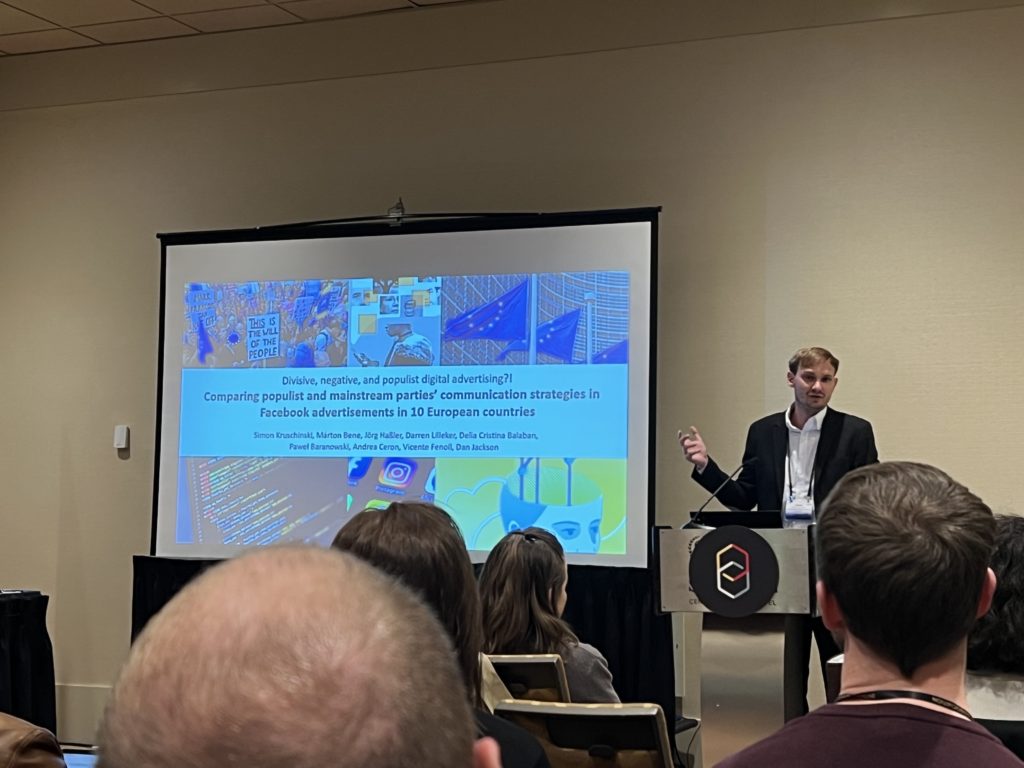
Free Webinar ‘Citizen Engagement With European Politics on Social Media’
The Webinar ‘Citizen Engagement With European Politics on Social Media’ analyses the main findings of the issue „Analysing Citizen Engagement with European Politics Through Social Media“, published in the Journal Politics and Governance.Pieter de Wilde (Norwegian University of Science and Technology, Norway), Helena Seibicke (University of Oslo, Norway), and Melanie Magin (Norwegian University of Science and Technology, Norway), who is an executive member of the CamforS team, are the speakers for the webinar. Tom Moylan from the European Commission will be present as a discussant.The Webinar took place on March 22nd The team of the webinar is thankful for all of the interested participants.For a recording of the Webinar you can visit this website, or directly watch the video below.https://www.youtube.com/watch?v=cdvhwQ7E8NI
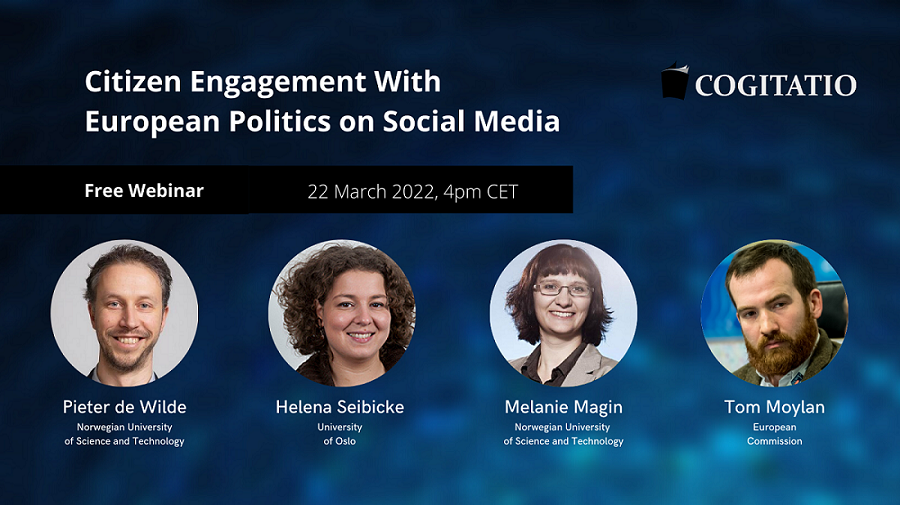
Our new book entitled „Campaigning on Facebook in the 2019 European Parliament Election. Informing, Interacting with, and Mobilising Voters“ has been published
Haßler, J., Magin, M., Russmann, U. & Fenoll, V. (Hrsg.). (2021). Campaigning on Facebook in the 2019 European Parliament Election. Palgrave Macmillan. https://doi.org/10.1007/978-3-030-73851-8https://link.springer.com/book/10.1007/978-3-030-73851-8This book investigates how political parties from 12 European countries used Facebook to inform, interact with and mobilise voters at the 2019 European Parliament election. Following a joint theoretical framework and method, the results of a content analysis of more than 14,000 Facebook posts are presented. Country specific chapters are followed by analyses of European parties’ Facebookcampaigning, the spread of populism and the use of Facebook ads by the parties.The final chapter compares all countries showing that campaigns are more strongly shaped by the national than by the European political context. Facebook is used for campaigning as usual; parties inform and persuade but neglect the platform’s mobilisation and particularly interactive affordances.“This remarkable book is the outcome of an international collaborative endeavour. It clearly shows that social networks have finally become an integral part of European election campaigns. With its careful methodological design, the study impressively demonstrates the particular value of cross-border comparisons and the need for research to take the national context into account.”—Christina Holtz-Bacha, Friedrich-Alexander University Erlangen-Nürnberg, Germany“A timely and stimulating book covering recent European Parliament elections in twelve nations. The common methodological background produces sound and comparable results, and its comprehensive language and broad scope of cases make this book a perfect fit for researchers, policymakers and citizens attentive to social media’s role in elections.”—Karolina Koc-Michalska, Audencia Business School, France
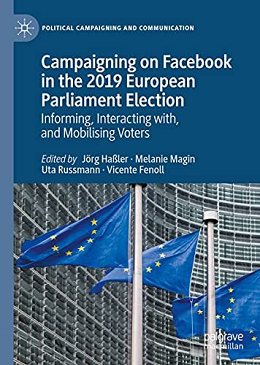
Denver 2021 ICA Annual Conference 27-31st May 2021
The CamforS network is represented with two presentations at the 71st (Virtual) Annual Conference of the International Communication Association (ICA) taking place from 27-31 May 2021. The first presentation is held in the panel “Why Are You So Dirty? New Insights in Negative Campaigning” of the Political Communication Division by Simon Kruschinski and Pawel Baranowski. They present results on how European parties’ engage in negative campaigning and how this is influenced by parties’ ideology and their status as governing versus opposition party at the national level. In the second presentation in the panel “Politics and Social Media: Engagement, Exploitation, and Entertainment” of the Communication & Technology Division, Simon Kruschinski presents results on the extent to which user engagement may contribute to processes of polarization and fragmentation by showing that polarizing topics and styles result in more reactions, comments, and shares. In the presentation it is also explored how users’ receptivity to content-related factors is shaped by country context.
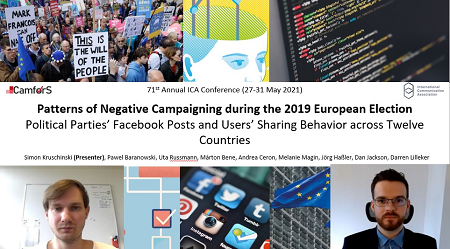
Zurich 2021 DACH 21 conference in Zurich on April 8, 2021
Katharina Schlosser presented recent results from CamforS on the personalization of campaign communication during the EP election campaign 2019 at the (virtual) DACH 21 conference in Zurich on April 8, 2021.As part of a cross-national quantitative content analysis of Facebook posts in the context of the 2019 European elections, we asked the question how the campaign strategies of European and national parties differ in 12 European countries. In this context, we compared information and mobilization elements. Our results show that the overall strategy of all parties was to disseminate information, mobilization calls were used less. A closer look shows that the European parties communicated more align with the concept of “Spitzenkandidaten“ by publishing more information about frontrunners and calls to watch the TV-debates of the “Spitzenkandidaten“. In contrast, the national parties continued to focus on their own election campaigns, more independent of the party’s “Spitzenkandidaten“. All in all, it is apparent that not the entire political family, which includes the European party but also the national parties, seems to be behind the concept of “Spitzenkandidaten“. Since in the end none of the previously nominated “Spitzenkandidaten” was appointed EU Commission President, shows the lesser relevance of the concept as well.
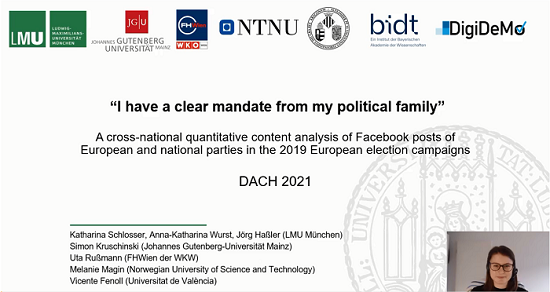
You can find all news articles on this site.











